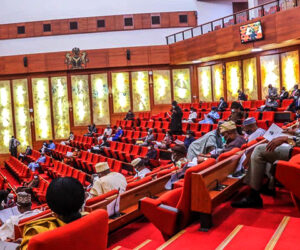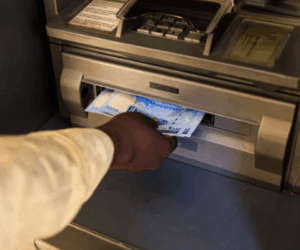Only 17,000 out of an estimated six million South Africans holding cryptocurrency have officially declared their digital assets to the South African Revenue Service (SARS). This massive gap highlights the scale of undeclared crypto wealth in the country and the growing challenge for tax authorities trying to track digital currency ownership.
Sixpence CEO Carel de Jager told 702 that the numbers reflect how far many investors have fallen from their tax obligations. “Out of six million South Africans who have cryptocurrency, only around 17,000 have disclosed crypto assets,” he stated. According to him, many taxpayers could soon receive SARS audit letters asking for detailed accounting records.

De Jager noted that cryptocurrency is being treated like a legitimate asset class, similar to shares, commodities, or foreign investment. Since the emergence of Bitcoin in 2008, the crypto has witnessed accelerated global adoption, but only recently have authorities started clamping down, especially for tax purposes.
“This tax shortfall might have been small at first, but it’s definitely growing very fast, and now SARS is targeting it,” he stated.
He explained that investors irrationally think that crypto can circumvent regulation. The majority, however, trade on licensed platforms that require proof of identification. Those exchanges are registered with the Financial Intelligence Centre and are subject to reporting.
For years, the guidelines have been unclear, and investors were left wondering how to report their profits. He went on to say that accounting for crypto trades for tax purposes remains complex, but complexity would not be a reason to default.
SARS turns to AI and audits to track defaulters
Along with assertions, SARS is also stepping up enforcement. In June 2024, Tax Consulting SA’s strategic investment and compliance leader, Jashwin Baijoo, said SARS has the authority to check banking records and use artificial intelligence to identify suspicious activity. The revenue agency also directly gets trading logs from South Africa-based crypto platforms.
When taxpayers come to notice, the audit letters they get include fill-in-the-blank forms requesting them to reconcile bank statement transactions and explain how they were generated. Baijoo explained that such requests are becoming automated through AI tools that identify potential discrepancies.
“Once you get that notice, you can be sure SARS is coming after you for some degree of non-compliance,” he stated.
The threats are not limited to recent dealings. A purchase made five years ago, even one that appears to be minor, may still be brought to the fore. In a few cases, bigger concerns, such as millions of rand being kept in accounts like Luno, may lead to further investigations.
A Technext report in 2024 shows that SARS had already sent query letters to taxpayers asking for information on their crypto transactions. The regulator stated it was reinforcing its audit teams with machine learning and data analytics to detect hidden assets. Commissioner Edward Kieswetter stated that taxpayers who fail to comply “make the compliance burden difficult for other taxpayers” and reduce the state’s ability to fund vital services.
Regulatory framework takes shape


Much of SARS’s confidence comes from growing cooperation with the FSCA, which is now treating crypto assets as financial products under the Financial Advisory and Intermediary Services Act. Exchanges are licensed and subject to strict licensing requirements, exposing regulators to broad customer and transaction data.
In July 2024, the FSCA issued a statement that 383 crypto provider applications were made for licenses, and 63 had been approved. It was also investigating tens of cases of unlicensed operations. The regulation has yielded a better framework for monitoring South Africa’s robust crypto market, where more than R520 million is traded monthly through local providers.
Kieswetter has also indicated that South Africa is sharing information with other tax administrations around the world in multilateral agreements, so offshore ownership isn’t kept in the dark. The nation is keeping pace with global trends, as tax administrations in Canada, America, and Europe are applying such tools and reporting systems to track digital asset activity.


SARS reaffirmed subsequently that failure to disclose crypto assets is presently unlawful.
“If you do not register, you are in contravention of the law,” Kieswetter indicated to Bloomberg in a recent interview.
The revenue service has since created a dedicated crypto asset unit within its audit department for the purposes of enforcement.
For some years now, South Africans believed that cryptocurrency profits were untaxed. In 2023, the South African Reserve Bank made it clear that digital assets are taxable, silencing all the doubts. Today, crypto is taxed as income or as a capital gain based on how it is used.
But with millions of South Africans holding crypto and reporting very few, the gap is huge. SARS has indicated that it will be pursuing non-compliance via technology, global cooperation, and direct action.








